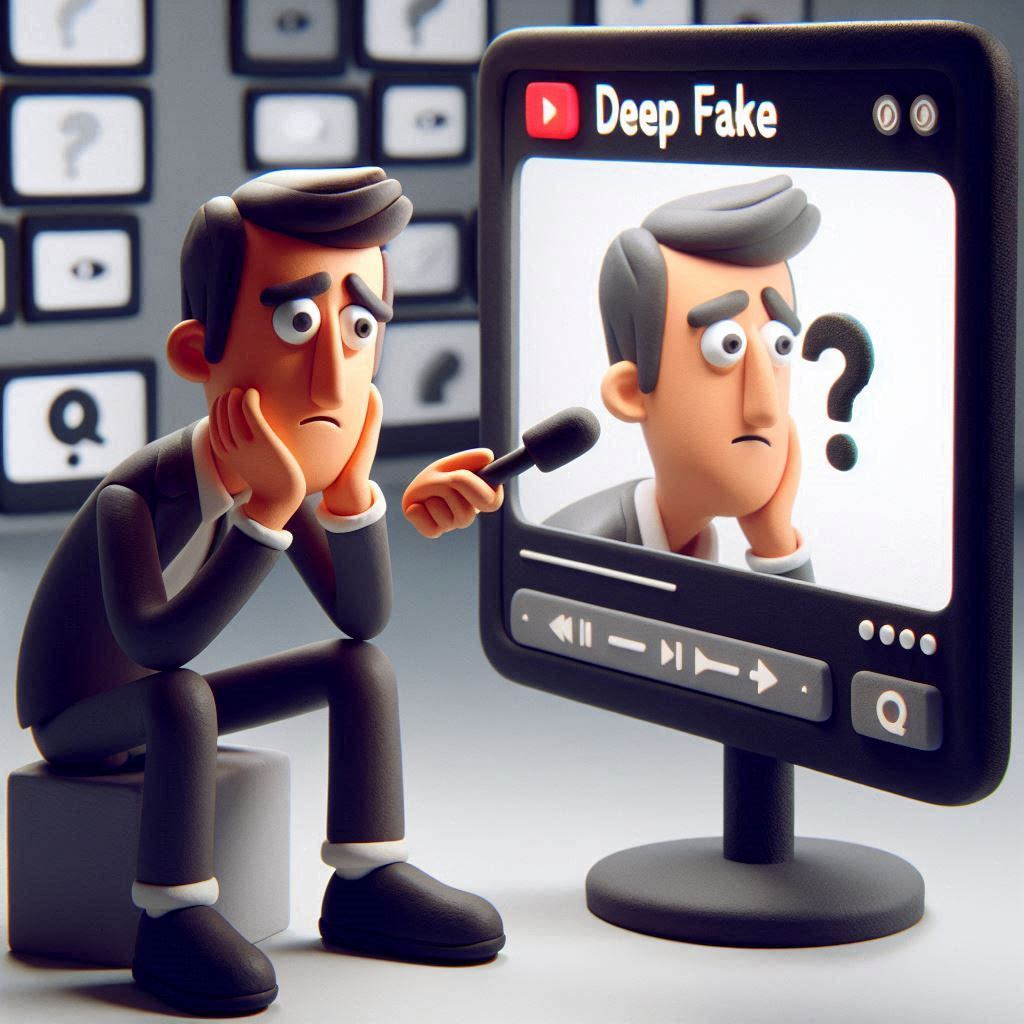As the CEO of a social media marketing agency, I’ve witnessed a profound shift in the digital landscape. It’s a transformation that has brought about incredible opportunities for connection, storytelling, and community-building. But it’s also introduced a darker element, one that threatens the very foundation of trust upon which these platforms were built. This challenge isn’t just about technology; it’s about digital ethics, the moral principles that guide our behavior in the digital world.
The Rise of Fake News
Not long ago, social media was celebrated as a democratizing force, giving everyone a voice and a platform. Social media’s incredible power and influence must also be balanced with duty, accountability, and the careful use of that power for good. Not all use this power wisely, and some abuse it. The proliferation of fake news has been one of the most insidious developments in the digital age. For instance, the 2016 US Presidential election, closely linked to the Cambridge Analytica scandal, was marred by the spread of false information, influencing public opinion and electoral outcomes. Sophisticated technology has made it alarmingly easy to create and spread misinformation.
I recall a time when discerning the credibility of a news source was relatively straightforward. Reputable news organizations had a monopoly on the dissemination of information, and their rigorous editorial standards served as a bulwark against falsehoods. Today, anyone with an internet connection can publish content that appears legitimate, regardless of its veracity.
As marketing professionals, we have a significant role to play in combating the trend of digital deception. Our responsibility extends beyond promoting our brands; it’s about safeguarding the integrity of the digital landscape. We must be vigilant in verifying the authenticity of the content we share and promote, ensuring that we do not inadvertently contribute to spreading misinformation.
The Advent of Deepfakes
Perhaps even more alarming than fake news is the rise of deepfakes. These highly realistic and convincing videos created using artificial intelligence (AI) algorithms depict individuals saying or doing things they never actually did. The implications of this technology are staggering. Similarly, digital twins, virtual replicas of real people, are created using a combination of AI and extensive data collection. They can mimic their real-world counterparts’ appearance, voice, and behavior.
Imagine a world where you can no longer trust the evidence of your own eyes. A world where a video of a political leader making inflammatory statements could spark unrest, even if the video is entirely fabricated. This is not the stuff of dystopian fiction; it is the reality we face today.
In my work, I have seen how deepfakes can be used to manipulate public opinion and damage reputations. The sophistication of these digital forgeries makes them incredibly difficult to detect, even for experts. This raises critical questions about the future of trust and authenticity in our digital interactions. Moreover, as technology advances, we can expect new and more sophisticated forms of digital deception to emerge. We must stay informed and prepared to tackle these challenges.
The Emergence of Digital Twins
Adding another layer to this crisis of trust is the emergence of digital twins. These are virtual replicas of real people created using a combination of AI and extensive data collection. Digital twins can mimic their real-world counterparts’ appearance, voice, and even behavior.
While the potential applications of digital twins are vast and varied, from personalized customer service to entertainment, they pose significant ethical and trust-related challenges. How do we know if we interact with a natural person or a digital facsimile? What happens to our perception of authenticity when virtual entities can seamlessly step into the roles of real individuals?
The Impact on Trust
The cumulative effect of fake news, deepfakes, and digital twins is an erosion of trust in social media. Trust is not just a buzzword; it’s the cornerstone of any personal or professional relationship. Without it, the connections we form and the communities we build become fragile and tenuous. The erosion of trust in the digital landscape is a serious issue that demands our immediate attention.
As a leader in social media marketing, we must address this crisis head-on. We must advocate for greater transparency and accountability in creating and disseminating digital content. These values are not just buzzwords; they are the foundation of trust and integrity. This includes supporting initiatives that promote media literacy and equipping individuals with the skills to critically evaluate online information. As the primary channels for digital content, social media platforms have a crucial role. They should invest in technologies and policies to detect and prevent the spread of fake news, deepfakes, and digital twins. By doing so, they can help rebuild trust in the digital landscape.
The Psychology of Misinformation
One of the most challenging aspects of combating digital deception is the human psychology involved. Even when we are presented with evidence that something is fake or a deepfake, our perception is often still altered. This phenomenon is supported by scientific research.
Cognitive biases play a significant role in how we process information. For example, the “illusory truth effect” shows that repeated exposure to false information can make it seem more credible. Even when we know that the information is untrue, the familiarity created by repetition can lead us to believe it more readily. (This is the psychology behind advertising frequency.)
Moreover, confirmation bias leads us to favor information that aligns with our preexisting beliefs and dismiss information that contradicts them. This is particularly disturbing in our current state of political polarization. Within the context of fake news and deepfakes, individuals are more likely to accept false information that supports their worldview, even when presented with factual corrections.
A study by Dr. Gordon Pennycook, Tyrone D. Cannon, and David G. Rand demonstrated that when people are exposed to fake news, their initial belief in the false information can persist even after being told it is untrue. This phenomenon, known as the ‘continued influence effect,’ highlights the difficulty in correcting misinformation once it has taken root. It shows that even when we know something is false, the initial exposure to it can still influence our beliefs, making us more susceptible to digital deception.
What Could Possibly Go Wrong?
The stakes of this crisis of trust are incredibly high, and the potential for harm is significant. To illustrate the gravity of the situation, let’s consider a scenario during an election year.
Election Year Chaos
Elections are the cornerstone of democratic societies. They are how citizens express their will and choose their leaders. Trust in the electoral process is paramount. However, this trust is increasingly at risk in an era of digital deception.
Imagine it’s an election year. As the campaign heats up, deepfakes of candidates begin to circulate. One video shows a leading candidate making disparaging remarks about a particular community. Another depicts a candidate admitting to corrupt practices. These videos go viral and are shared millions of times across social media platforms.
Despite efforts by fact-checkers to debunk these videos, the damage is done. Many voters, already skeptical of the media, believe the deepfakes. The candidates’ reputations are irreparably harmed, and the electorate is deeply divided. On election day, the results are heavily influenced by the misinformation campaigns. The candidate who was targeted by the deepfakes loses by a narrow margin.
The fallout is immediate and severe. Protests erupt as citizens question the legitimacy of the election. The losing candidate refuses to concede, citing the deep fakes as evidence of a coordinated attack. Trust in the democratic process is shattered, and the country is plunged into a political crisis.
This scenario is not just a hypothetical. We have seen instances where misinformation has influenced public opinion and electoral outcomes. The advent of deepfakes and digital twins only amplifies this threat. The ability to create compelling and damaging content at scale means that no one is safe from digital deception. The potential harm is real, and it’s up to us to prevent it.
Rebuilding Trust
Rebuilding trust in the digital age is no small feat, but it is not impossible. Here are some steps we can take to foster a more trustworthy online environment:
- Promote Transparency: Encourage platforms and content creators to be transparent about the origins and authenticity of their content. This can involve labeling AI-generated content and providing context for digitally altered media.
- Support Fact-Checking: Amplify the efforts of fact-checking organizations and integrate their findings into our content strategies. Fact-checking is a crucial defense against the spread of misinformation.
- Educate and Empower: Invest in digital literacy programs that teach individuals how to critically assess the credibility of online information. Empowering users with these skills is a critical step in combating misinformation.
- Advocate for Regulation: Support policies and regulations addressing emerging technologies’ ethical implications. This includes advocating for laws that hold creators of deepfakes and other deceptive content accountable.
- Lead by Example: As professionals in the digital space, we must model ethical behavior. This means being meticulous in our content creation and sharing practices and holding ourselves to the highest standards of integrity.
Moving Forward
As we navigate this complex digital landscape, we must remain vigilant and proactive in safeguarding trust. The technologies that have given rise to this crisis are not inherently evil; they are tools that can be used for good and evil. It is our responsibility to ensure that they are used ethically and responsibly.
I urge my fellow marketing professionals to join me in this endeavor. Together, we can foster a digital environment where authenticity and trust are paramount and where the connections we build are genuine and enduring.
By embracing transparency, supporting fact-checking, educating users, advocating for regulation, and leading by example, we can rebuild the trust that has been eroded. It is a challenging task, but one that is essential for the future of our digital society.
*This blog post is a collaborative effort between my insights and the capabilities of generative AI, blending human experience with advanced technology.



